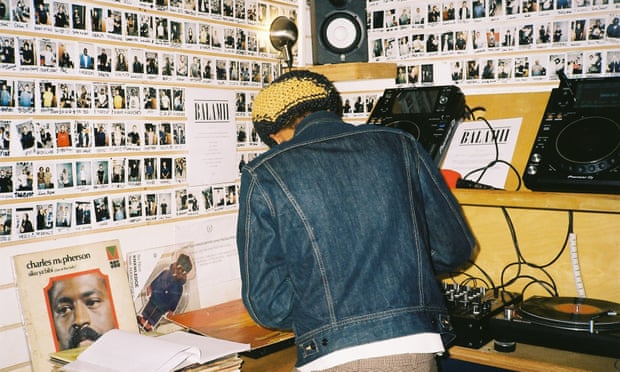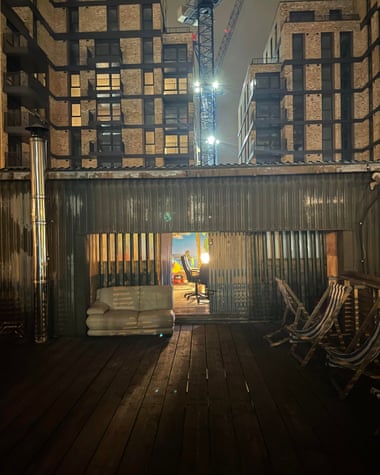Gilles Peterson got his first broadcast gig aged 16 at Radio Invicta, the pirate station that boasted it put “soul over London”. He got his own slot a year later, and has spent the ensuing four decades channelling his inquisitive musical spirit into shows with Kiss FM and the BBC, as well as his Brownswood record label, and festivals in the UK, France and Italy. But for the past six years, a freeform online radio station, Worldwide FM (WWFM), has been at the forefront of his efforts, providing shape and sound to a global community of music enthusiasts.
This week, WWFM announced it would be ceasing new broadcasts from the end of October while it seeks new funding options.
The news followed similar announcements from other indie stations, including Threads, which was evicted from its Tottenham, London, headquarters at the end of August, and Bristol’s SWU FM, which, crippled by rising costs, ceased broadcasting entirely at the beginning of September, seven years after its inception. At the start of the year, south London outlet Balamii stripped back its output to a five-day operation run solely by founder James Browning.
Autumn has arrived with stark warnings from industry bodies, including UK Music and the Music Venue Trust (MVT), that live venues, studios and other music businesses will face insurmountable costs this winter. MVT members have reported energy bill increases of as much as 740%. One recording space in the capital has annual bills set to rise from £132,000 to £288,000 come October.
Details on how the government intends to keep the country afloat remain scant. Some plans have been proffered to support households but businesses are yet to receive any clarity. This includes those in the music, leisure and hospitality industries.
Independent radio stations are often run as bootstrapped labours of love, but they provide vital development space for musicians, DJs, and production talent, as well as royalty income to musicians. Now, many of them are at risk of falling through the cracks of government indifference.
“It feels harder than ever,” says Threads co-founder Freddie Sugden. “We’re not in this to sell it on the stock market and make millions of pounds, but we are trying to find ways to put some money in the pockets of the people managing the station, so it can still be here in five years’ time.”
Official Rajar (Radio Joint Audience Research) figures show that around 90% of people in the UK still tune in to the radio at least once a week. But independent stations have no real advertising market to speak of and few decent funding options other than brand partnerships, public funding or old-school methods such as charging “subs” (in which show hosts pay a modest fee to host their show on the station). Keeping the mics on is a constant challenge.
As a station’s audience and ambitions grow, so too do costs – even if the income isn’t there to match it. “These things do start off as passion projects, because of a need in your cultural space and your community,” says Peterson. “Then, before you know it, you’ve got to find 30 grand a month.” As well as staff – WWFM has eight full-time and six part-time employees – stations have to think about rent, equipment costs, and broadcast licences.
WWFM launched in 2016 alongside a spate of similar ventures, including Balamii and the since-shuttered Radar Radio. Inspired by the freeform programming of pirate stations, and mostly free from Ofcom regulation, these outlets thrived in the wilds of the web, with music scenes forming around them.
The current predicament many independent stations find themselves in feels particularly cruel after two years of lockdowns in which the intimacy of live radio offered succour to so many.
Lee Fagan, Sugden’s partner at Threads, says “the energy of a physical community” is a large part of the appeal of independent stations. “That’s under threat, as there doesn’t seem to be any talk about concessions for this type of cultural industry in relation to energy prices.”

Independent stations such as SWU and Balamii don’t just broadcast. At almost any indie station, the battered bean bags or tatty leather sofas outside the studio can be just as appealing as the music being played: this is where conversations happen and connections are made. Practice rooms offer budding broadcasters a chance to hone their skills or pre-record shows. It’s here that the next generation of TV and radio stars cut their teeth.
It’s not all bad news. Balamii’s slimmed down approach appears to have worked – Browning says they’re hiring freelancers and getting back to pre-pandemic levels of activity – and the team at No Signal, a London operation that aims to “connect the various Black diasporas across the world via audio content” are buoyant as ever, while stalwart operation NTS is pushing on with a supporter-based model. Peterson, Fagan, and Sugden, although all apprehensive about independent radio’s future, remain sanguine.
“One of the big motivators is that I still think radio is incredibly important,” says Sugden. “The more challenging the surroundings in society are, the more important it is to have an unpretentious platform to discuss that.
“How that’s facilitated is very difficult, but the world is not getting any easier. Whether it’s climate change, the energy crisis, social division – all these things are issues that challenge the existence of these DIY-leaning communities,” he says. “But it means they’re needed even more, too.”

